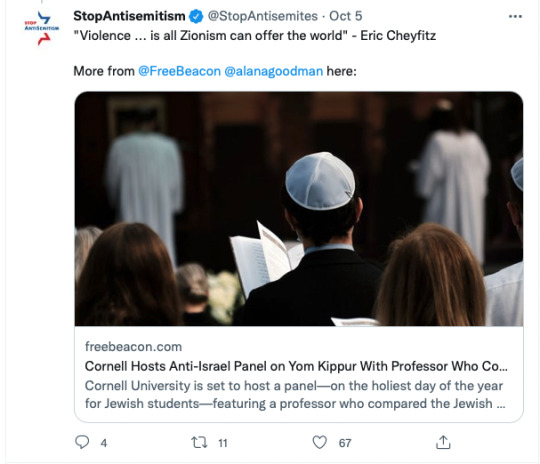#eric cheyfitz
Photo


Source
8 notes
·
View notes
Text
Week 1
Comparative Literature: History, Theories, Ideologies: Introduction.
In the first week of the course we shall discuss what is comparative literature; its origins; the ideologies that are implicated in the discipline; how it has developed, the questions that have been addressed to it in more recent times, the challenges it faces today; what are some of the traditional methods it employs to study texts; how it sees the relationship between language, culture, reading and understanding texts; its relationship with translation and with “world literature”. We shall then consider some brief texts to ‘see’ and ‘do’ comparative literature in practice.
“Narcissus and Echo” episode from Ovid’s Metamorphoses; [Course Pack]
Denise Riley, “Affections of the Ear”; [Course Pack]
Ted Hughes, “Narcissus and Echo”. [Course Pack]
Secondary Reading (* especially recommended)
* Bassnett, Susan, Comparative Literature: A Critical Introduction (Oxford: Blackwell, 1993)
* Bernheimer, Charles (ed.), Comparative Literature in the Age of Multiculturalism (Baltimore and London: The Johns Hopkins University Press, 1995)
Eoyang, Eugene C., The Promise and Premise of Creativity: Why Comparative Literature Matters (London: Continuum, 2012)
Gifford, Henry, Comparative Literature: Concepts of Literature (London: Routledge & Kegan Paul, 1969)
* Guillén, Claudio, The Challenge of Comparative Literature (Cambridge, Mass: Harvard University Press, 1993)
Hermans, Theo (ed.), The Manipulation of Literature (London and Sidney: Croom Helm, 1985)
Koelb, Clayton and Susan Noakes (eds.): The Comparative Perspective on Literature: Approaches to Theory and Practice (Ithaca and London: Cornell University Press, 1988)
Miner, Earl, Comparative Poetic: An Intercultural Essay on Theories of Literature (Princeton: Princeton University Press, 1990)
* Saussy, Haun, Comparative Literature in an Age of Globalization (Baltimore and London: Johns Hopkins University Press, 2006)
Spivak, Gayatri Chakravorty, Death of a Discipline (New York: Columbia University Press, 2003)
Tötösy de Zepetnek, Steven (ed.) Comparative Literature and Comparative Cultural Studies (West Lafayette, Indiana: Purdue University Press, 2003)
Tötösy de Zepetnek, Steven, Comparative Literature: Theory, Method, Application (Amsterdam and Atlanta: Rodopi, 1998)
Weisstein, Ulrich, Comparative Literature and Literary Theory, trans. William Riggan, (Bloomington and London: Indiana University Press, 1973)
If you are interested in early history and documents of comparative literature:
Schulz, H-J. and P. H. Rhein, Comparative Literature: The Early Years. An Anthology of Essays (Chapel Hill: The University of North Carolina Press, 1973)
The following journals will also be relevant - you can browse through them:
New Comparison
Comparative Criticism
Comparative Critical Studies (esp. volume 3, no 1-2, 2006, Comparative Literature at a Crossroads?)
Comparative Literature Studies
Translation and Literature
CLC-Web
Some further reading on World Literature
Apter, Emily, Against World Literature: On the Politics of Untranslatability (London: Verso, 2013)
Casanova, Pascale, The World Republic of Letters, trans. B. B. DeBevoise, (Cambridge, MA, and London: Harvard University Press, 2004) [orig. French ed. 1999]
Chow, Rey, 'The Old/New Question of Comparison in Literary Studies: A Post-European Perspective', ELH, Vol. 71, No. 2 (Summer, 2004), pp. 289-311
http://www.jstor.org/stable/30030049
Damrosch, David, What is World Literature? (Princeton and Oxford: Princeton University Press, 2003).
Damrosch, David, How to Read World Literature (Chichester, UK and Malden, MA: Wiley-Blackwell, 2009)
Moretti, 'More Conjectures', New Left Review 20 (2003), pp. 73-81
(this is a follow up of Moretti's essay, set for this seminar, after the debate it had elicited. This is currently not available in the library and I will request it, but in the meantime, I have a pdf file for this if you want to read it)
Prendergast, Christopher, Debating World Literature (London: Verso, 2004).
Prendergast, Christopher, 'Negotiating World Literature', New Left Review 8 (2001), pp. 100-121
(this is a response to the essay by Moretti set for the seminar. This is currently not available in the library and I will request it, but I have a pdf file for this if you want to read it)
Rosendhal Thonsen, Mads. Mapping World Literature. International Canonization and Transnational Literatures. New York: Continuum, 2010
Some secondary reading on translation (and comparative literature)
Apter, Emily, The Translation Zone: A New Comparative Literature (Princeton, NJ and Oxford: Princeton University Press, 2006)
Bassnett, Susan, and André Lefevere, Translation, History, and Culture (London and New York: Pinter, 1990)
Bassnett, Susan, and André Lefevere, eds., Constructing Cultures: Essays on Literary Translation (Clevedon : Multilingual Matters, 1998)
Bassnett, Susan, and Harish Trivedi, eds., Post-colonial Translation: Theory and Practice (London and New York: Routledge, 1998)
Berman Sandra, and Michael Wood, eds., Nation, Language, and the Ethics of Translation (Princeton and Oxford: Princeton University Press, 2005)
Cheyfitz, Eric, The Poetics of Imperialism: Translation and Colonization from the Tempest to Tarzan, rev ed. (Philadelphia: University of Pennsylvania Press, 1997)
Copeland, Rita, Rhetoric, Hermeneutics and Translation in the Middle Ages: Academic Traditions and Vernacular Texts (Cambridge: Cambridge University Press, 1991)
Cronin, Michael, Translation and Globalization (London: Routledge, 2003)
Even-Zohar, Itamar, and Gideon Toury (eds.), Translation Theory and Intercultural Relations (Tel Aviv: Porter Institute for Poetics and Semantics, 1981)
Even-Zohar, Itamar, Polysystem Studies, A special issue of Poetics Today 11:1 (1990). (Durham: Duke University Press, 1990).
Lefevere, André, Translating, Rewriting, and the Manipulation of Literary Frame (London: Routledge, 1992).
Niranjana, Tejaswini, Siting Translation: History, Post-structuralism, and the Colonial Context (Berkeley, Los Angeles and Oxford: University of California Press, 1992)
(also contains chapters on Benjamin)
Robinson, Douglas, Translation and Empire: Postcolonial Theories Explained (Manchester; St. Jerome Press, 1997)
Tymoczko, Maria and E. Gentzler eds., Translation and Power (Amherst, MA: University of Massachusetts Press, 2002)
Venuti, Lawrence (ed.), Rethinking Translation: Discourse, Subjectivity, Ideology (London and New York: Routledge, 1992)
Venuti, Lawrence, ed., The Translation Studies Reader (London and New York: Routledge, 2000)
2 notes
·
View notes
Photo

“The Disinformation Age: The Collapse of Liberal Democracy in the United States,” Eric Cheyfitz Tuesday, February 13, 2018 - 4:45pm Guerlac Room, A.D. White House ICM New Conversations Series ERIC CHEYFITZ Ernest I. White Professor of American Studies and Humane Letters English Department, Cornell University source
0 notes
Text
Jewish Voice for Peace Event Feb. 16th
Anti-Semitism? Academic Freedom? Apartheid? Human Rights? Double Standard?
Let’s talk about it!
Jewish Voice for Peace invites you to a public discussion of the Academic Boycott of Israel with Cornell Professor and American Studies Association member Eric Cheyfitz.
When: Sunday, February 16th, 6:30 – 8:30pm
Where: Second Floor Annex, First Unitarian Society of Ithaca, Corner of Aurora and Buffalo Streets, Ithaca, NY.
Why: Because all of our voices matter!
Free and Open to the Public
Sponsored by Ithaca Chapter of Jewish Voice for Peace, Ithaca Catholic Worker, Dorothy Cotton Institute, Cornell Students for Justice in Palestine, and Social Action Committee of First Unitarian Society of Ithaca.
Jewish Voice for Peace Event Feb. 16th was originally published on The Eutopian
#academia#academic freedom#anti-semitism#apartheid#boycott#communication#dialogues#human rights#islam#israel#judaism#palestine#religion#crosspost#theeutopian
1 note
·
View note
Text
"...the models of intercultural communication that anthropology produces ... influence the actual contact between cultures, which is only to acknowledge that the models are political productions that produce politics. The politics of these models is, therefore, crucial and cannot be separated rom the necessity of recognizing them as models, as figures of the other, not fact. Only the other has the right to decide if these figures touch his or her [sic] facts. If we are practicing the difficult politics of translation, rather than the politics of translation that repress this difficult politics, then such touch, however tentative, should occur." -Eric Cheyfitz, The Poetics of Imperialism (xix)
0 notes
Text
"We must be in translation between cultures and between groups within our own culture if we are to understand the dynamics of our imperialism. For our imperialism historically has functioned (and continues to function) by substituting for the difficult politics of translation another politics of translation that represses these difficulties." --Eric Cheyfitz, The Poetics of Imperialism (xvi)
0 notes
Text
"I do not believe in philanthropy, which presumes an understanding of the position of the other, but in social justice, which presumes nothing, but grounds itself in the difficult politics of imagining kinship across the frontiers of race, gender, and class. This politics must begin and end with a critique of one's own place... But one cannot articulate a critique of one's own place unless one can also stand in a radically different place. Without imagining socialism, for example, something public opinion in the United States traditionally has been unable to do, except in the most negative, the most repressive, ways, we cannot imagine a critique of capitalism. So capitalism's social problems, which are the consequences of a n intensifying and increasingly desperate global poverty, go unanswered. This is the place we find ourselves in today: having reached the limits of capitalisms imagination, we have no social vision, no other place, from which we can imagine constructive social action." --Eric Cheyfitz, The Poetics of Imperialism (xiv)
0 notes
Text
"This conflict between individualism and communalism constitutes the dialogue I am currently engaged in. Materially grounded in a property-holding individualism, I seek to articulate an intense criticism of that ground. I seek to articulate, that is, a communal ground." --Eric Cheyfitz, The Poetics of Imperialism (xiii)
0 notes